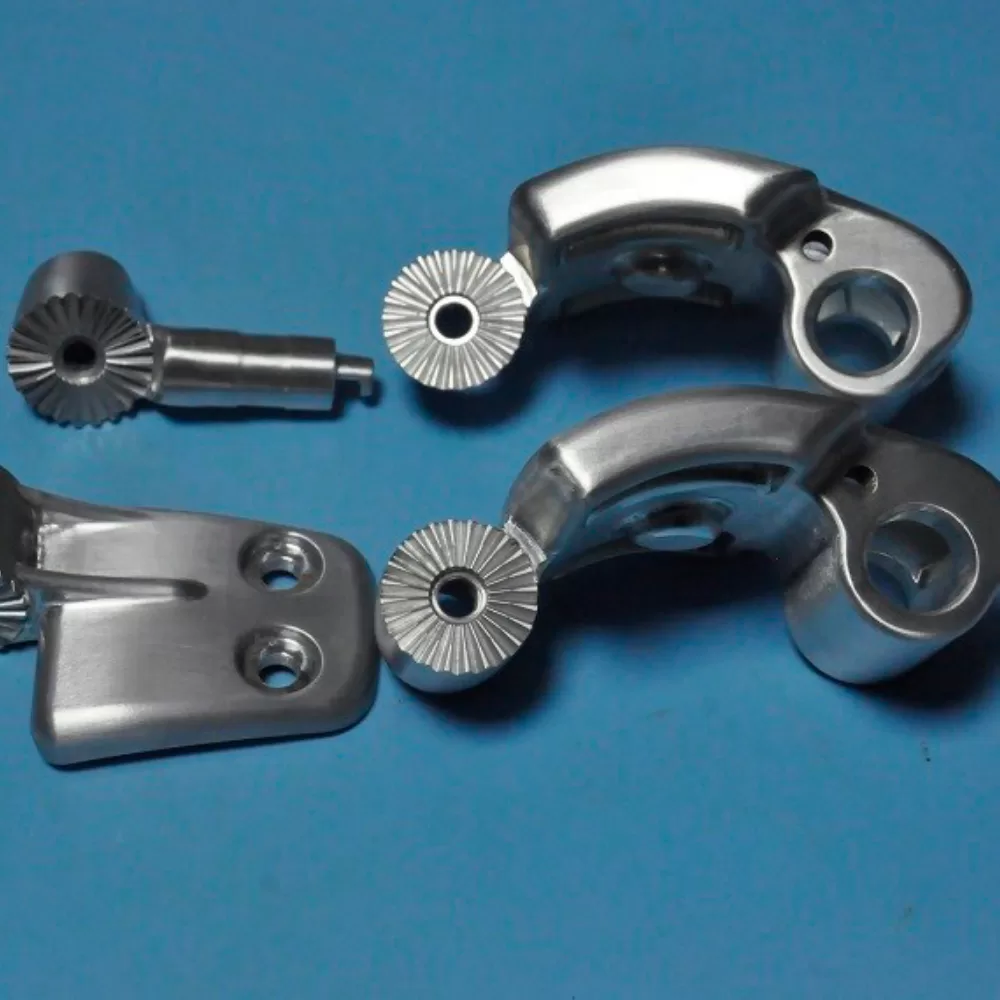Titanium involved in the CNC machining industry usually refers to titanium alloys, not titanium elements. Titanium is considered a rare metal due to its dispersed and difficult extraction in nature.
The Development History of Titanium:
In 1940, Luxembourg scientist W.J.Kroll made pure titanium by reducing TiCl4 with magnesium. Since then, the magnesium reduction method (also known as the Krall method) and the sodium reduction method (also known as the Hunter method) have become industrial methods for producing sponge titanium. In 1948, the United States produced 2 tons of titanium sponge by the magnesium reduction method, and the industrial production of titanium began.
In 1947, people began to smelt titanium in factories. That year, the output was only 2 tons. Production surged to 20,000 tons in 1955. In 1972, the annual output reached 200,000 tons. The yield strength of titanium is higher than that of steel, and its weight is almost half that of steel of the same volume. Although titanium is slightly heavier than aluminum, its yield strength is twice that of aluminum. The specific strength of titanium is higher than that of aluminum and steel, and the specific modulus is very close to that of aluminum and steel. In space rockets and missiles, titanium is widely used instead of steel. Because titanium is very strong and can withstand high pressure, people began to use titanium to make submarines – titanium submarines. This submarine can sail in deep seas as deep as 4,500 meters.
According to statistics, the titanium used for space navigation in the world has reached more than 1,000 tons every year. Very fine titanium powder is also a good fuel for rockets, so titanium is known as cosmic metal and space metal.
The Advantages of Titanium as a CNC Machining Material
- Titanium has a metallic luster and is malleable.
- The main characteristics of titanium are low density, high mechanical strength and easy processing.
- Titanium has strong resistance to damping. After being subjected to mechanical vibration and electrical vibration, its own vibration attenuation time is the longest compared with steel and copper metals.
- Titanium is superconducting.
- Titanium alloy has high thermal strength, and its service temperature is several hundred degrees higher than that of aluminum alloy.
- Good corrosion resistance: Titanium alloy works in humid atmosphere and seawater medium, and its corrosion resistance is far superior to stainless steel; it has particularly strong resistance to pitting corrosion, acid corrosion, and stress corrosion; it is resistant to organic substances such as alkali, chloride, and chlorine. Articles, nitric acid, sulfuric acid, etc. have excellent corrosion resistance. However, titanium has poor corrosion resistance to media with reducing oxygen and chromium salts.
- Good performance at low temperature: Titanium alloy can still maintain its mechanical properties at low and ultra-low temperatures. Titanium alloys with good low-temperature performance and extremely low interstitial elements, such as TA7, can maintain certain plasticity at -253°C. Therefore, titanium alloy is also an important low-temperature structural material.
Application of CNC Machined Titanium Parts:
CNC machining of titanium alloy parts is most widely used in the aviation field, such as aircraft engine parts and structural parts of rockets and missiles, shipbuilding industry, chemical industry, manufacturing of mechanical parts, telecommunications equipment, etc. CNC machining of titanium alloys can also be used to manufacture automatic rifles, Mortar seat plate and launch tube of recoilless gun. In the petroleum industry, CNC machining titanium is mainly used in various containers, reactors, heat exchangers, distillation towers, pipes, pumps and valves, etc. Titanium is also used as Electrodes and capacitors in power stations and environmental pollution control devices. Titanium-nickel shape memory alloys have been widely used in instrumentation. In medicine, titanium can be used as artificial bones and various appliances. Titanium is also a deoxidizer for steelmaking and a component of stainless steel and alloy steel. Titanium carbide and titanium hydride are new cemented carbide materials.

Advantages of CNC Machining Titanium Alloy in China:
The total amount of titanium resources in China is 965 million tons, ranking first in the world, accounting for 38.85% of the world’s proven reserves, mainly concentrated in Sichuan, Yunnan, Guangdong, Guangxi and Hainan, among which the Panxi (Panzhihua Xichang) area is the largest in China Titanium resource base, the amount of titanium resources is 870 million tons. China’s proven titanium resources are distributed in 108 mining areas in 21 provinces (autonomous regions and municipalities). The main production area is Sichuan, followed by Hebei, Hainan, Guangdong, Hubei, Guangxi, Yunnan, Shaanxi(this is exactly where we are), Shanxi and other provinces (regions). In this sense, China can be called the country with the richest ilmenite resources in the world.
related links:
